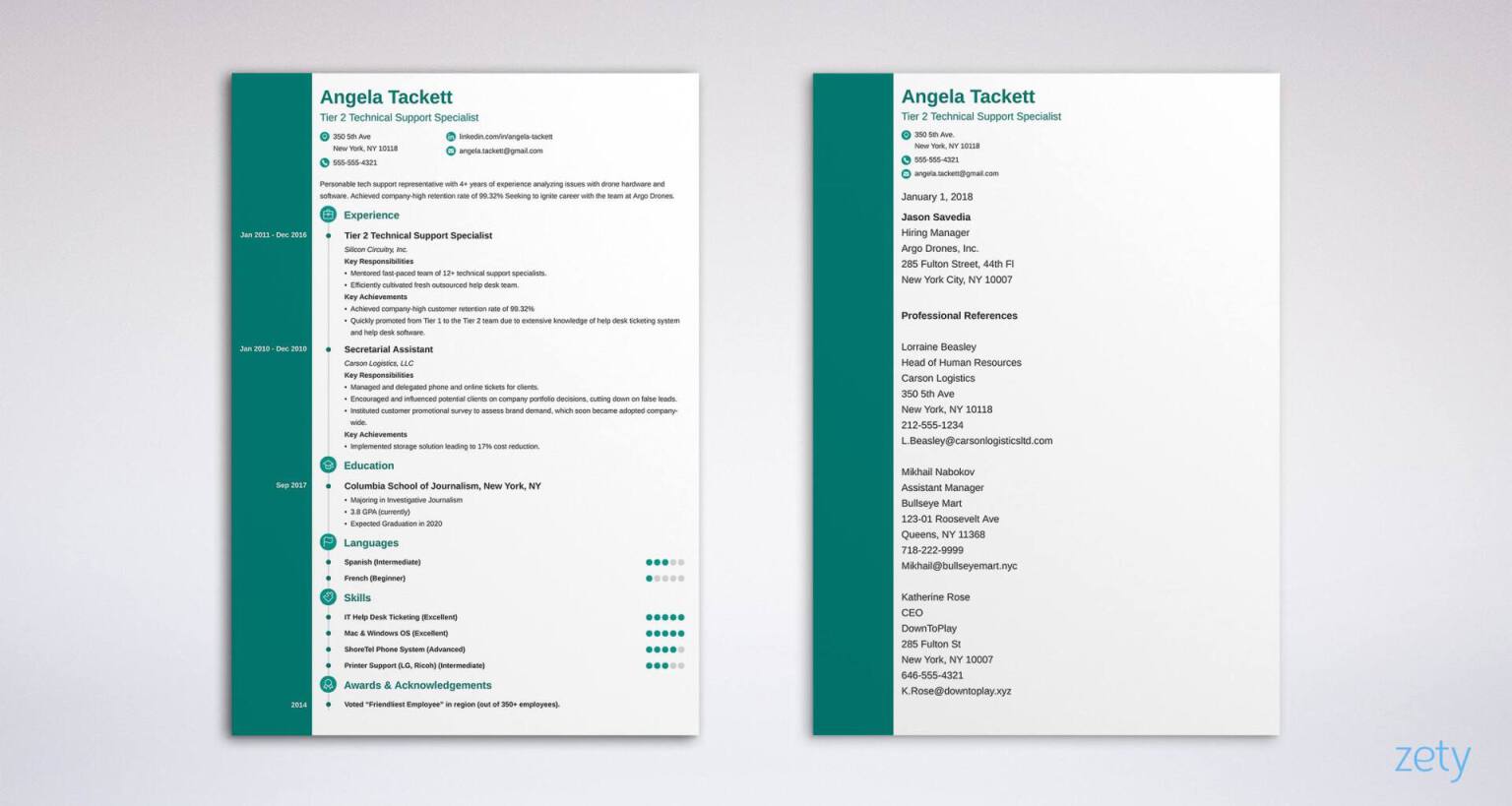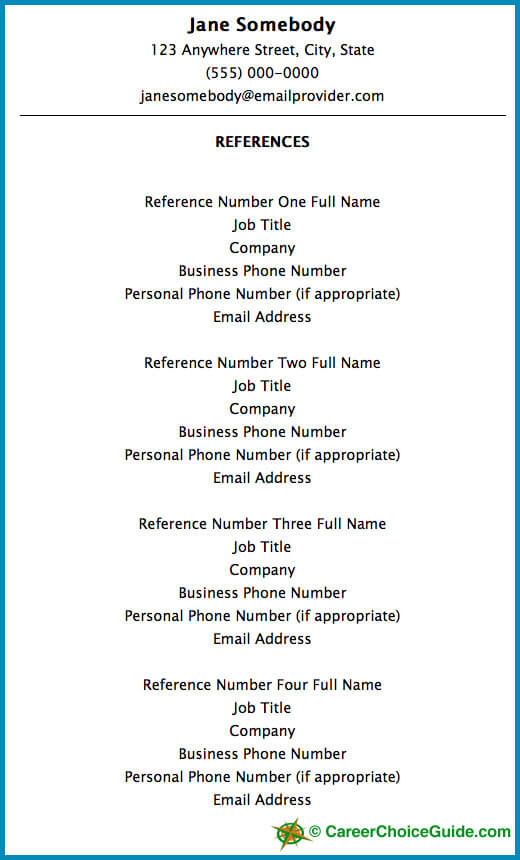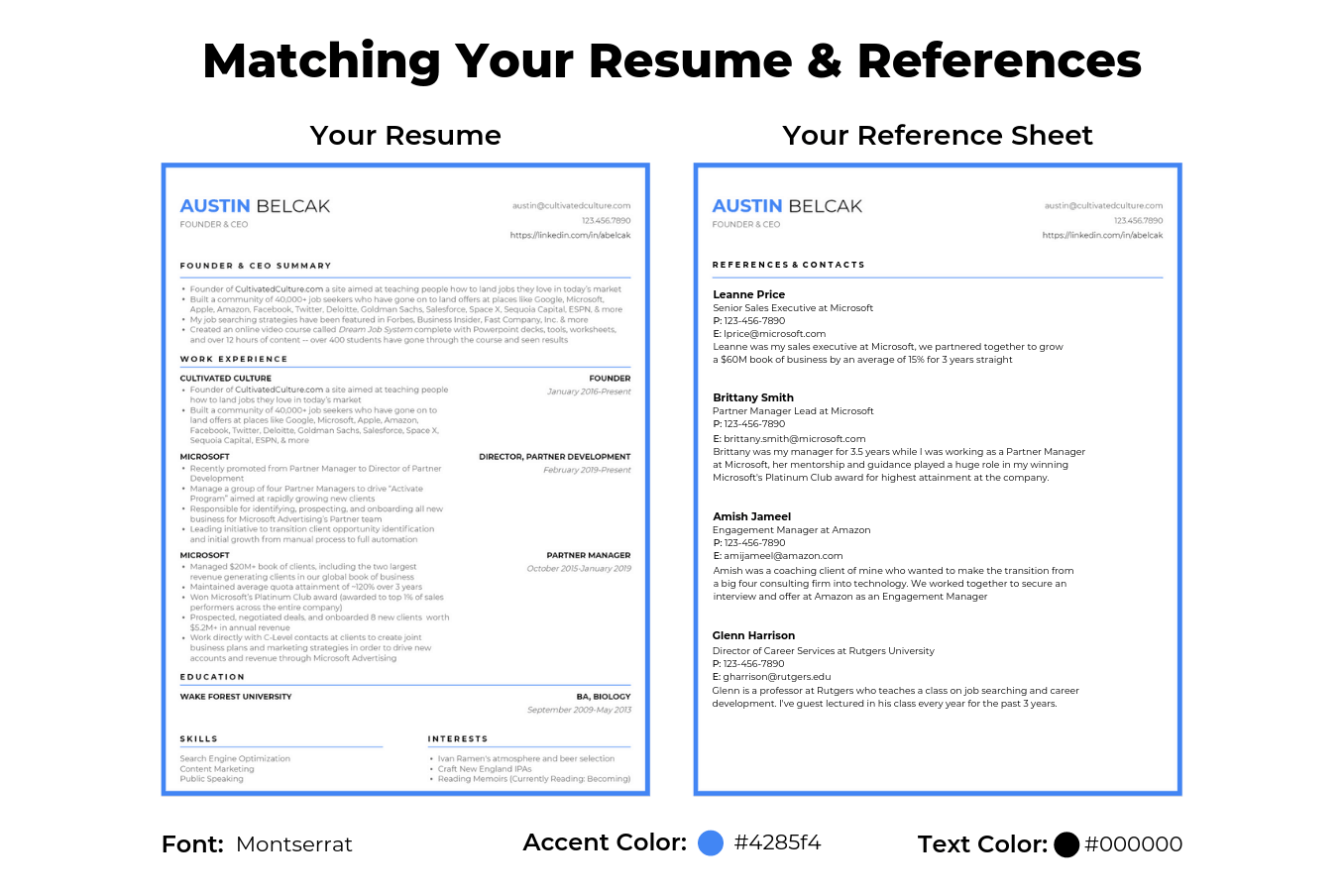Reference Example On Resume - As you may already know, including references in your resume can increase your chances of getting hired. Having a good reference can improve your credibility, provide additional information to the employer, validate your skills and experience, and demonstrate your professionalism. However, not all candidates know how to properly include references in their resume. In this post, we'll explore some effective tips and ideas on how to add references to your resume, as well as discuss some common mistakes to avoid. So, let's dive in!
What is a Resume Reference Page?
Resume Reference Page - Task List Templates
The first thing to know is that a resume reference page is a separate document that lists the contact information of people who can vouch for your skills, experience, and character. This page is usually submitted to employers after the interview stage or upon request. The purpose of the reference page is to provide the employer with additional information about you and to validate your claims in the resume. It should contain the names, job titles, company names, email addresses, and phone numbers of your references. However, not all employers require a reference page, and it's not necessary to include it in your initial application.
When to Include References in Your Resume?
References in CV - Cabai
Now that you know what a reference page is, you may wonder when is the best time to include references in your resume. The general rule is to avoid putting references in your resume unless the employer explicitly asks for them. This is because most employers prefer to focus on your qualifications, experience, and achievements in the resume, rather than your references. Moreover, including too many references can make your resume longer and less focused, which can hinder your chances of getting shortlisted. However, if the job posting specifically asks for references or if the employer asks for them during the interview, you should prepare a reference page and bring it with you.

Who Should You List As a Reference?
Resume Reference Page Setup Tips & Template - Career Choice Guide
When choosing your references, try to select people who know you professionally and can provide positive feedback about your work or character. Ideally, your references should be former supervisors, colleagues, clients, or professors who have worked with you directly and can describe your skills and accomplishments. If you're a recent graduate or have little work experience, you can use academic references or personal references who know you well and can attest to your strengths. It's essential to ask for permission from your references and inform them about the job you're applying for. Be sure to provide them with a copy of your updated resume and inform them of any skills or achievements you want them to highlight.

How to Include References in Your Resume?
3 Simple Ways To Include References In A CV - Pedalaman
If you decide to include references in your resume, there are several ways to do it. One option is to list your references at the end of your resume or on a separate reference page. Another option is to mention your references in your resume summary or objective statement. For instance, you can write "References available upon request" or "Expertise confirmed by reputable references." This can save space on your resume and give the employer the impression that you have strong references. However, keep in mind that this approach may also make employers wonder why you didn't include the references upfront, and may prompt them to ask for them during the interview. If you choose to create a separate reference page, make sure it follows the same format as your resume and uses the same font and style. You can also include a header that says "Professional References" or "References for [Your Name]."

Conclusion
Adding references to your resume can be a strategic move to increase your chances of getting hired. However, it's important to know when, how, and whom to include in your reference list. By following the tips and ideas outlined in this post, you can enhance your resume, demonstrate your credibility and professionalism, and increase your chances of succeeding in the job market. Just remember to ask for permission from your references, keep your resume focused, and tailor your references to the job requirements. Good luck!

Find more articles about Reference Example On Resume


